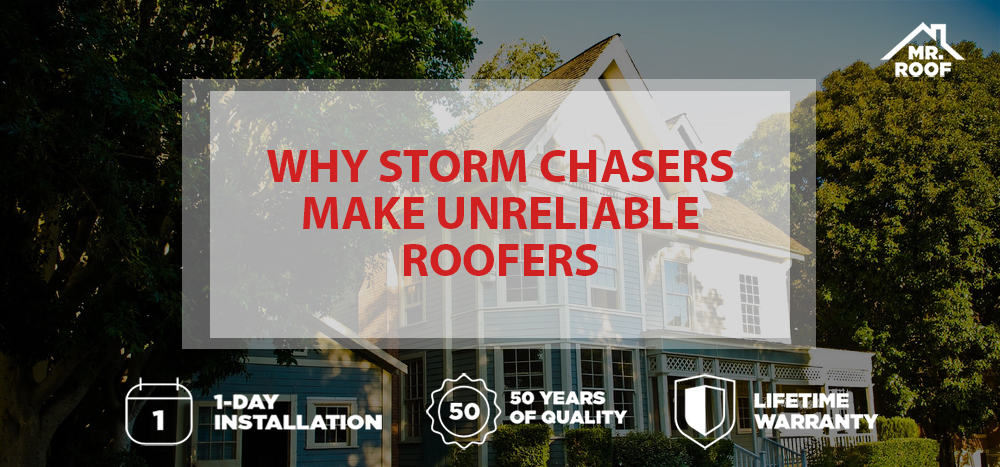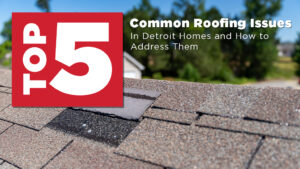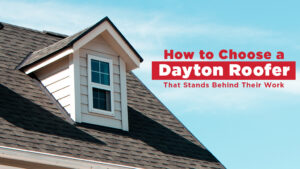When a big storm hits, your roof can suffer a great deal of damage. Typically, this damage is covered by your homeowner’s insurance, which means you are more likely to take action to repair or replace your roof. Fraudulent roofing contractors known as “storm chasers” know about the increased likelihood of roof repair in areas affected by large storms, and can rip off homeowners with poorly constructed roofing projects. Knowing how to identify these storm chasers can help you avoid falling for their corrupt tactics.
What is a Storm Chaser?
Storm chasers are roofing contractors who go to neighborhoods recently affected by strong wind, hail and rain. They use special programs to locate large storms and determine the value of affected homes. They use their knowledge of insurance companies to estimate the cost of a new roof. They know local, reputable roofing businesses are most likely overwhelmed and overbooked, so they go door to door to notify residents that they have roofing services available. Typically, they will start by offering a free roof inspection.
Why Are Storm Chasers Unreliable?
Most storm chasers only do the bare minimum to replace a damaged roof. They find the cheapest materials to quickly assemble a new roof, often leaving out important elements and failing to restore things back to their original condition. These cheaply installed roofs often last less than ten years, whereas professional roofing contractors using high-quality materials and techniques would leave you with a roof lasting 40 years or more. Storm chasers usually do not have the proper licensing or insurance to work on roofs.
In some cases, storm chasers do not replace the roof at all. Instead, they give a free inspection, quote a reasonable price and ask for upfront payment. Once they are paid, they move on to the next town without any intention of working on the roof.
What Tactics Do Storm Chasers Use?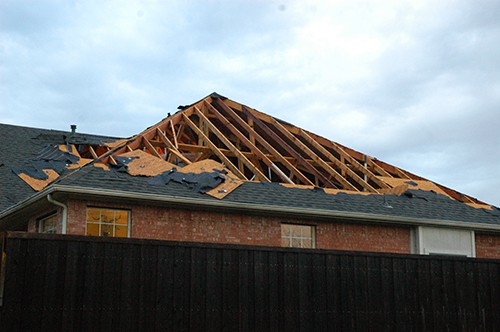
To avoid getting caught in a storm chaser’s schemes do your research. Never hand over any money until you are sure you are getting reliable work and pay close attention to the approach they use. There are a few telltale signs that a contractor is a storm chaser.
They Come Directly to Your Door
The first sign that should raise red flags is if a roofing contractor knocks on your door. Usually, roofers do not seek work, especially after a big storm. Instead, they let the work come to them. Because storm chasers move around to wherever the storms go, they cannot rely on the chances that people in need of roof repair will find them. Sometimes storm chasers go so far as to pretend they were sent by a company that previously worked on your roof. If this happens, ask for proof.
They Want Payment Upfront and in Cash
If a contractor asks you to pay for the entire job upfront in cash, this is a good sign they are a storm chaser. Reputable roofing businesses would not do this. When you pay storm chasers upfront, even if it is just a deposit, it is likely that will be the last time you ever see them.
They Offer to Pay for the Deductible
How nice would it be to have your insurance deductible waived? Storm chasers think so, too. If a roofing contractor offers to pay for your deductible, they are probably a storm chaser. It is considered insurance fraud to allow a contractor to pay the deductible. If you let a roofing company pay your deductible, you will be the one responsible for committing the illegal act. Make sure you are familiar with your insurance policy and the laws regarding fraud to prevent yourself from falling into this trap.
They Create Damage That Was Not There Before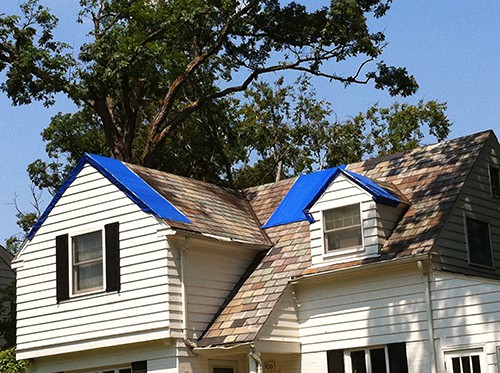
Because they are usually familiar with the insurance claim process, storm chasers sometimes create their own damage if the real damage is not sufficient. They may use golf balls, hammers or other hard, heavy objects to pound dents into your roof. Watch and listen carefully as contractors inspect your roof and have a camera or cell phone ready to catch them in the act if you are suspicious. Adding fake damage for the purpose of collecting insurance money can have serious consequences.
Educate yourself and your neighbors about the common signs of storm chasers to avoid being the victim of a roofing scheme. Check the Better Business Bureau if you are unsure of the legitimacy of a roofing contractor. This will tell you if the business is local and if complaints have been filed against it.
Mr. Roof is proud to boast an A+ rating on the BBB. We are a local, trusted roofing company with over 50 years of experience and over 250,000 satisfied customers. Getting a new roof is an expensive endeavor, so make sure you are getting it done right the first time by a company you can trust.



